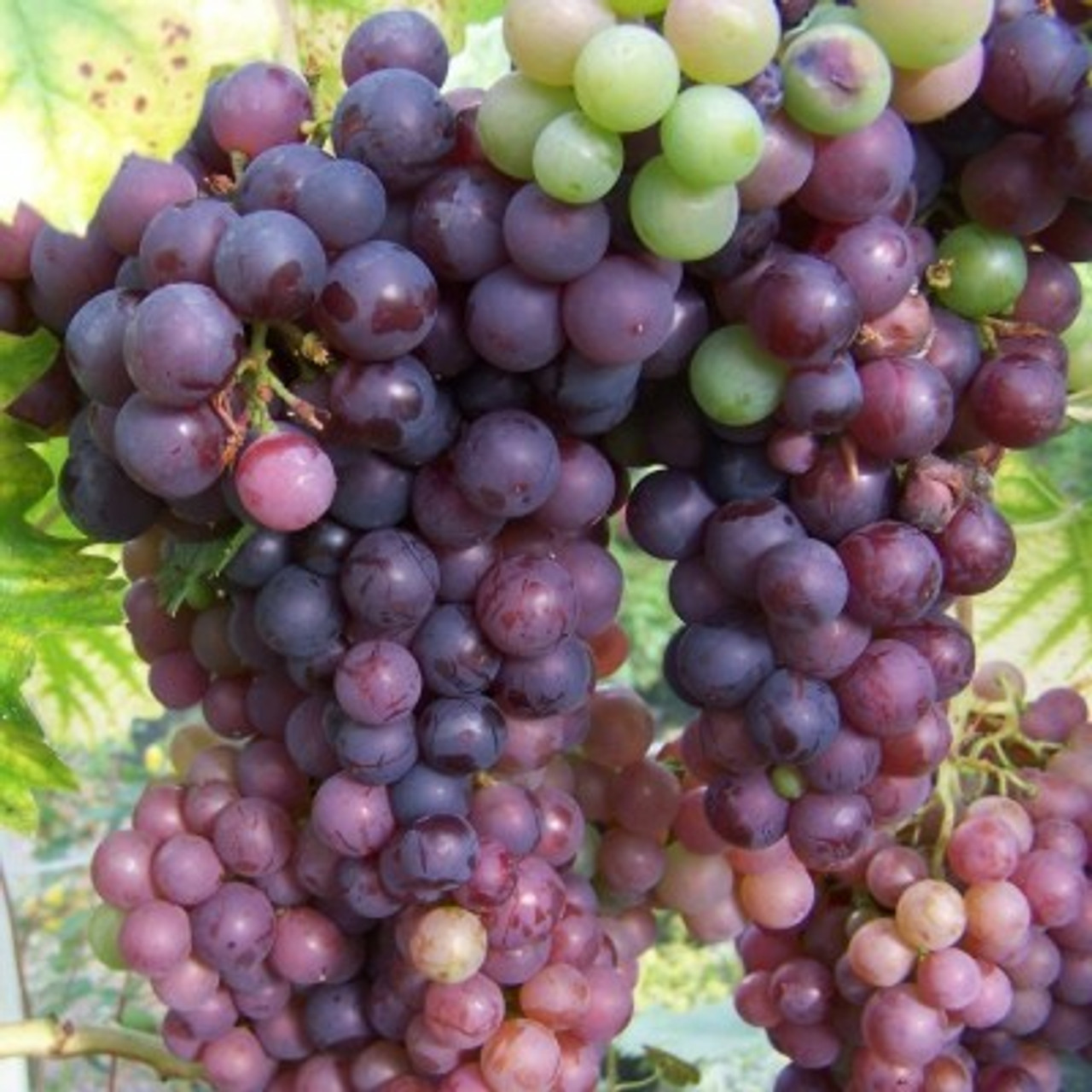
Grape
Grapevines tolerate most soil types (except clays and shallow soils), and are vigorous growers benefiting from high light levels and good ventilation whether grown outdoors or in a greenhouse. Some varieties are perfectly suited to outdoor growth and are productive for wine-making at the same time (Look at the white grapes Solaris and Siegerrebe for example), others may not yield large crops in the North of England outdoors unless given plenty of shelter and sunshine - especially the reds.
The Romans introduced wine making to England,and winemaking continued down to the time of the Normans with more than 40 vineyards being mentioned in the Domesday Book. And, by the time that Henry VIII was crowned in 1509, 139 vineyards were recorded, 11 of which produced as Royal vineyards, dedicated to the monarchy. The advent of Phylloxera ruined the British crop, and wine making declined through the 19th century until WW1 when no commercial crops were left. It was not until 1936, that George Ordish planted vines in Wessex bringing about a voyage of rediscovery for English wines and wine making, since when, at least 500 commercial vineyards have sprung up all over the UK, as far North as Aberdeen, and with one of the most successful and award-winning (that being Ryedale Vineyards, Westow, North Yorkshire) only a few miles away from the RV Roger nursery.

